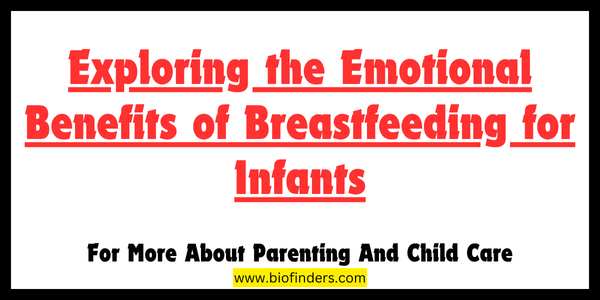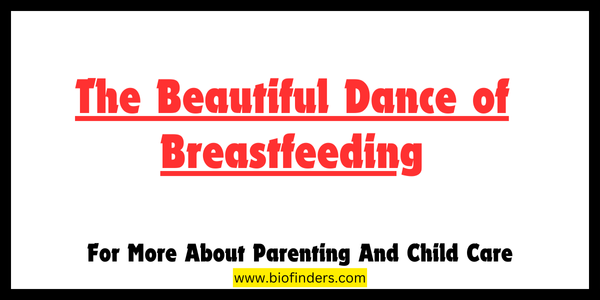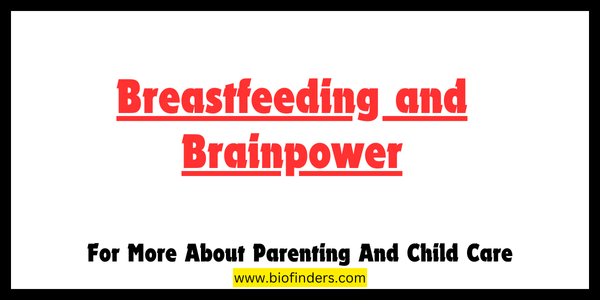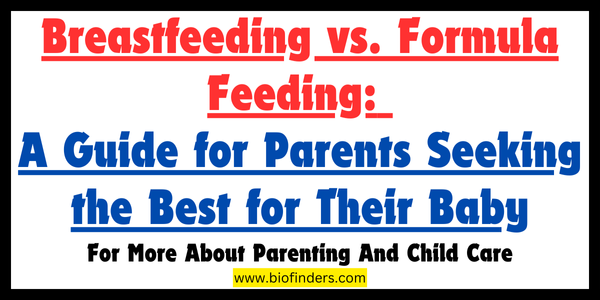Breastfeeding, beyond providing essential nutrients, offers a haven of comfort and security in this new environment. It’s a beautiful way to nurture your little one and foster a strong emotional bond.
Building a Bond Through Touch: Skin-to-Skin Contact and Emotional Well-Being
During breastfeeding, a mother and baby experience close skin-to-skin contact. This closeness triggers the release of oxytocin, often referred to as the “love hormone,” in both mother and baby. Oxytocin promotes feelings of calm and relaxation, lowering stress levels for both. The warmth of the mother’s body provides comfort for the baby, replicating the familiar environment of the womb.
This physical closeness also allows for important eye contact. While a newborn’s vision is still developing, gazing into their mother’s eyes fosters a sense of connection and emotional intimacy. This nonverbal communication helps babies feel safe and loved.
The Power of Comfort: Breastfeeding as a Soothing Mechanism
The act of sucking is a natural calming reflex for infants. It allows them to satisfy this reflex while receiving nourishment. The rhythmic sucking motion combined with the warmth and closeness of the mother provides a powerful soothing mechanism. This can help regulate a baby’s nervous system and reduce instances of fussiness and crying.
Over time, consistent breastfeeding experiences teach babies that their needs are met promptly. This fosters a sense of security and trust in their caregiver. They learn to associate the breastfeeding experience with comfort and well-being, developing a foundation for healthy emotional regulation skills later in life.
Fostering Trust: The Foundation for Secure Attachment
Erik Erikson, a renowned developmental psychologist, proposed the theory of psychosocial stages. The first stage, from birth to 18 months, focuses on “trust vs. mistrust.” Breastfeeding plays a crucial role in this stage by helping babies develop a sense of trust in their primary caregiver.
When a baby’s hunger cues are consistently met through breastfeeding, they learn that their needs will be fulfilled. This fosters a sense of trust and security in their relationship with their mother. This secure attachment forms the basis for healthy emotional development and future relationships.
Beyond the Physical: The Emotional Journey of Breastfeeding
The emotional benefits of breastfeeding extend beyond the immediate experience for both mother and baby.
- Mothers: It can contribute to a mother’s sense of accomplishment and confidence in her ability to nurture her child. It can also help regulate postpartum hormones, potentially reducing the risk of postpartum depression.
- Fathers: Fathers who are actively involved in the breastfeeding journey, whether by providing support or offering skin-to-skin time during bottle feeding with expressed breast milk, can also strengthen the emotional bond with their baby.
Short-tailed keywords: breastfeeding benefits for mothers, breastfeeding and postpartum depression
Remember: Fed is Best
While breastfeeding offers numerous emotional advantages, it’s important to remember that a fed baby is a happy baby. If breastfeeding doesn’t work out for you and your baby, formula feeding can provide all the necessary nutrients for healthy growth and development. The most important aspect is to create a loving and nurturing environment for your child, regardless of the feeding method
Building a Support System: Resources for Breastfeeding Success
Breastfeeding can be a beautiful journey, but it also comes with challenges. Having a strong support system is crucial for success. Here are some resources that can help:
- La Leche League International: https://llli.org/
- National Childbirth Trust: https://www.nct.org.uk/
- International Board of Lactation Consultant Examiners: https://ilca.org/
By understanding the emotional benefits of breastfeeding, you can create a nurturing environment that fosters a strong bond with your baby and sets the stage for their healthy emotional development. Remember, the most important thing is to find a feeding method that works best for you and your little one.
Beyond the Basics: Exploring Additional Emotional Benefits of Breastfeeding
While the core emotional benefits of breastfeeding revolve around security, comfort, and trust, there are additional ways breastfeeding can nurture your infant’s emotional well-being.
Communication and Emotional Cues: Breastfeeding as a Dialogue
It is not just about nourishment; it’s a form of communication between mother and baby. A baby’s feeding cues and behaviors provide valuable information about their emotional state. Learning to recognize these cues, such as rooting, fussiness, or increased sucking, allows mothers to respond promptly and appropriately. This fosters a sense of being understood and cared for in the infant, further strengthening the emotional bond.
Building Self-Esteem: The Power of Positive Reinforcement
The act of feeding allows babies to feel a sense of accomplishment. They learn that their actions (such as sucking and latching) lead to a desired outcome (feeling full and satisfied). This positive reinforcement can contribute to a developing sense of self-esteem and mastery in infants.
Sensory Exploration: A World of Comforting Scents and Sounds
It allows babies to experience a range of comforting sensory stimuli. The familiar scent of their mother’s breast provides a sense of security. The rhythmic sounds of their mother’s heartbeat create a calming environment. These sensory experiences contribute to a feeling of well-being and emotional comfort.
Breastfeeding and the Gut-Brain Connection: A New Frontier
Emerging research suggests a link between the gut microbiome (the community of bacteria in the intestines) and brain development. Breast milk contains prebiotics, which help nourish beneficial gut bacteria. A healthy gut microbiome may contribute to better emotional regulation and reduced stress levels in infants.
Remember: It is a journey, not a destination. There will be challenges along the way. Be patient with yourself and your baby. Seek support from lactation consultants, feeding through breast groups, and healthcare professionals. The emotional rewards of it are well worth the effort.
By nurturing your baby’s emotional well-being through feeding, you are laying the foundation for a healthy and happy life.






Leave a Reply